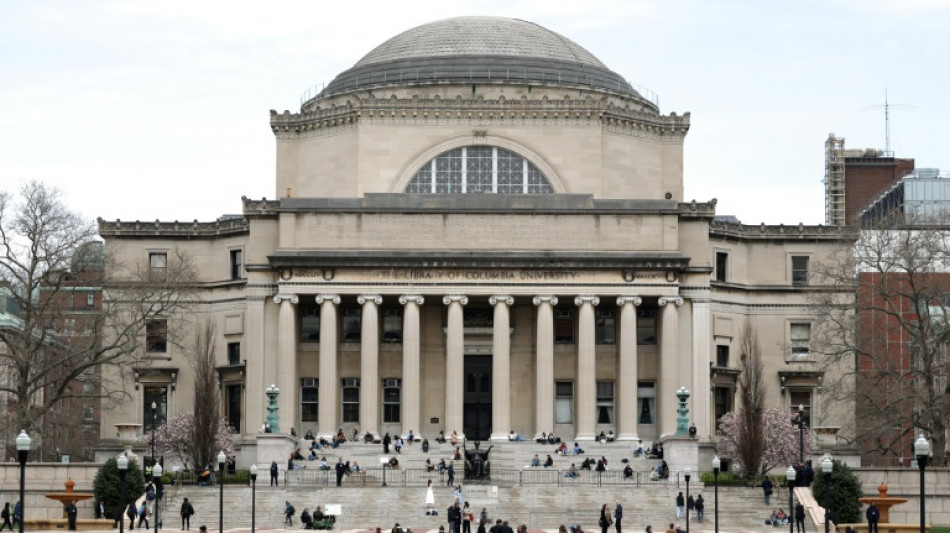
-
 Tarnished image and cheating claims in Malaysia football scandal
Tarnished image and cheating claims in Malaysia football scandal
-
Family affair as Rinderknech joins Vacherot in Shanghai quarters

-
 New documentary shows life in Gaza for AFP journalists
New documentary shows life in Gaza for AFP journalists
-
Tennis stars suffer, wilt and quit in 'brutal' China heat

-
 Wildlife flee as floods swamp Indian parks
Wildlife flee as floods swamp Indian parks
-
Record flooding hits Vietnam city, eight killed in north

-
 Battling cancer made Vendee Globe win 'more complicated', says skipper Dalin
Battling cancer made Vendee Globe win 'more complicated', says skipper Dalin
-
England, Portugal, Norway closing in on 2026 World Cup

-
 Child protection vs privacy: decision time for EU
Child protection vs privacy: decision time for EU
-
Bear injures two in Japan supermarket, man killed in separate attack

-
 In Simandou mountains, Guinea prepares to cash in on iron ore
In Simandou mountains, Guinea prepares to cash in on iron ore
-
Morikawa says not to blame for 'rude' Ryder Cup fans

-
 Far right harvests votes as climate rules roil rural Spain
Far right harvests votes as climate rules roil rural Spain
-
'Return to elegance': highlights from Paris Fashion Week

-
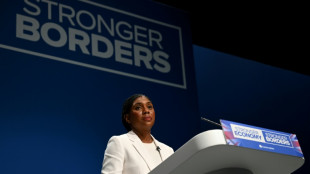 Britain's storied Conservative party faces uncertain future
Britain's storied Conservative party faces uncertain future
-
New Zealand's seas warming faster than global average: report

-
 Snakebite surge as Bangladesh hit by record rains
Snakebite surge as Bangladesh hit by record rains
-
Yankees deny Blue Jays playoff sweep as Mariners beat Tigers

-
 Australia police foil 'kill team' gang hit near daycare centre
Australia police foil 'kill team' gang hit near daycare centre
-
US, Qatar, Turkey to join third day of Gaza peace talks in Egypt

-
 Gold tops $4,000 for first time as traders pile into safe haven
Gold tops $4,000 for first time as traders pile into safe haven
-
Indian garment exporters reel under US tariffs

-
 NBA back in China after six-year absence sparked by democracy tweet
NBA back in China after six-year absence sparked by democracy tweet
-
Energy storage and new materials eyed for chemistry Nobel
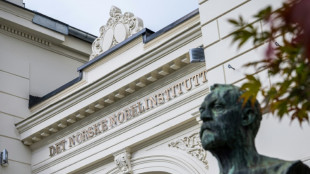
-
 Trump unlikely to win Nobel Peace Prize, but who will?
Trump unlikely to win Nobel Peace Prize, but who will?
-
Qatar, Turkey to join third day of Gaza peace talks in Egypt

-
 Study finds women have higher genetic risk of depression
Study finds women have higher genetic risk of depression
-
Dolly Parton's sister calls for fan prayers over health issues

-
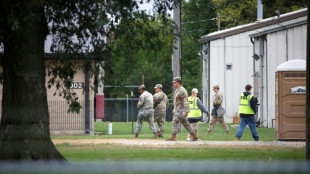 On Trump's orders, 200 troops from Texas arrive in Illinois
On Trump's orders, 200 troops from Texas arrive in Illinois
-
Two bodies found, two missing after Madrid building collapse

-
 Panthers raise banner as NHL three-peat bid opens with win
Panthers raise banner as NHL three-peat bid opens with win
-
Nobel physics laureate says Trump cuts will 'cripple' US research
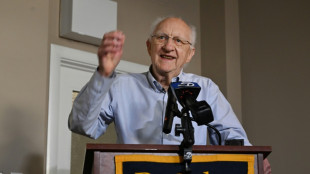
-
 UFC star McGregor suspended 18 months over missed drug tests
UFC star McGregor suspended 18 months over missed drug tests
-
Trump talks up Canada trade deal chances with 'world-class' Carney
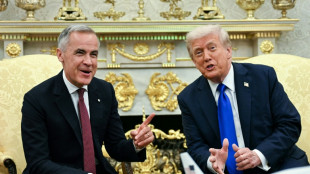
-
 Ecuador president unharmed after apparent gun attack on motorcade
Ecuador president unharmed after apparent gun attack on motorcade
-
Lyon exact revenge on Arsenal, Barca thrash Bayern in women's Champions League

-
 Trump says 'real chance' to end Gaza war as Israel marks attacks anniversary
Trump says 'real chance' to end Gaza war as Israel marks attacks anniversary
-
Gerrard brands failed England generation 'egotistical losers'

-
 NFL fines Cowboys owner Jones $250,000 over gesture to fans
NFL fines Cowboys owner Jones $250,000 over gesture to fans
-
Bengals sign veteran quarterback Flacco after Burrow injury

-
 New prime minister inspires little hope in protest-hit Madagascar
New prime minister inspires little hope in protest-hit Madagascar
-
Is Trump planning something big against Venezuela's Maduro?
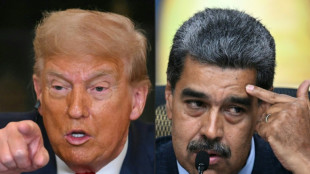
-
 EU wants to crack down on 'conversion therapy'
EU wants to crack down on 'conversion therapy'
-
French sex offender Pelicot says man who abused ex-wife knew she was asleep

-
 Trump says 'real chance' to end Gaza war as Israel marks Oct 7 anniversary
Trump says 'real chance' to end Gaza war as Israel marks Oct 7 anniversary
-
UK prosecutors to appeal dropped 'terrorism' case against Kneecap rapper

-
 Spain, Inter Miami star Alba retiring at end of season
Spain, Inter Miami star Alba retiring at end of season
-
EU targets foreign steel to rescue struggling sector

-
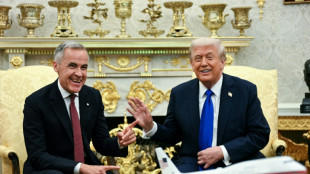 Trump talks up Canada deal chances with visiting PM
Trump talks up Canada deal chances with visiting PM
-
Knight rides her luck as England survive Bangladesh scare


Academics warn Columbia University deal sets dangerous precedent
Columbia University's $200 million agreement with President Donald Trump's administration marks the end of a months-long showdown, but academics warn it is just the first round of a government "assault" on higher education.
Academics from Columbia and beyond have expressed concerns that the deal -- which makes broad-ranging concessions and increases government oversight -- will become the blueprint for how Trump brings other universities to heel.
The New York institution was the first to be targeted in Trump's war against elite universities, for what the US president claimed was its failure to tackle anti-Semitism on campus in the wake of pro-Palestinian protests.
It was stripped of hundreds of millions of dollars of federal funding and lost its ability to apply for new research grants. Labs saw vital funding frozen, and dozens of researchers were laid off.
But Columbia last week agreed to pay the government $200 million, and an additional $21 million to settle an investigation into anti-Semitism.
According to Ted Mitchell, president of the American Council on Education, the lack of due process -- with the government slashing funding before carrying out a formal investigation -- left Columbia in an "untenable position."
Columbia law professor David Pozen agreed, saying the "manner in which the deal was constructed has been unlawful and coercive from the start" and slamming the agreement as giving "legal form to an extortion scheme."
- Federal oversight -
The deal goes beyond addressing anti-Semitism and makes concessions on international student admissions, race and ethnicity considerations in admissions and single-sex spaces on campus, among other issues.
Columbia also agreed to appoint an independent monitor to implement the deal, share ethnicity admissions data with the government and crack down on campus protests.
Many of the provisions "represent significant incursions onto Columbia's autonomy," said Pozen.
"What's happened at Columbia is part of a broader authoritarian attack on civil society," he said, pointing to similar pressures on law firms and media organizations to fall in line.
According to the law professor, the deal "signals the emergence of a new regulatory regime in which the Trump administration will periodically and unpredictably shake down other schools and demand concessions from them."
In the coming weeks, Pozen said he expected the "administration will put a lot of pressure on Harvard and other schools to follow suit."
Harvard University has pushed back against the government, filing a lawsuit in a bid to reverse sweeping funding cuts.
But Steven Levitsky, a professor of government at Harvard, said that "in terms of academic freedom and in terms of democracy, the (Columbia) precedent is devastating."
- 'First round' -
Education Secretary Linda McMahon said she hoped the Columbia deal would be a "template for other universities around the country."
On Wednesday, McMahon announced a deal with Brown University to restore some federal funding and end ongoing investigations after the Ivy League school agreed to end race considerations in admissions and adopt a biological definition of gender.
Brown President Christina Paxson admitted "there are other aspects of the agreement that were not part of previous federal reviews of Brown policies" but were "priorities of the federal administration."
Harvard is reportedly considering forking out $500 million to settle, according to the New York Times.
Others have made smaller concessions to appease the government, with Trump's alma mater the University of Pennsylvania banning transgender women from competing in women's sports, and the University of Virginia's head resigning after scrutiny over its diversity programs.
Brendan Cantwell, a professor at Michigan State University who researches the history and governance of higher education, said government interference in universities "has not happened at scale like this, probably ever in American history."
While some university staff see striking an agreement as the quickest way to reopen the federal funding spigot, Cantwell warned that concessions such as sharing ethnicity data from admissions could be "weaponized" and provide fodder for future probes.
Levitsky agreed, saying: "Extortionists don't stop at the first concession. Extortionists come back for more."
"There's a very high likelihood that this is just the first round," he said.
Pozen noted that it will be harder for "major research universities to hold the line" compared to smaller colleges which are less reliant on federal funding.
But Levitsky still urged Harvard to stand its ground and "fight back," including in the courts.
"Fighting an authoritarian regime is costly, but that's what we have to do," he said. "This is an unprecedented assault, and universities need to work together."
M.Schneider--VB
